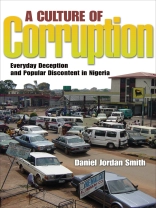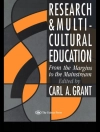E-mails proposing an ‘urgent business relationship’ help make fraud Nigeria’s largest source of foreign revenue after oil. But scams are also a central part of Nigeria’s domestic cultural landscape. Corruption is so widespread in Nigeria that its citizens call it simply ’the Nigerian factor.’ Willing or unwilling participants in corruption at every turn, Nigerians are deeply ambivalent about it–resigning themselves to it, justifying it, or complaining about it. They are painfully aware of the damage corruption does to their country and see themselves as their own worst enemies, but they have been unable to stop it. A Culture of Corruption is a profound and sympathetic attempt to understand the dilemmas average Nigerians face every day as they try to get ahead–or just survive–in a society riddled with corruption.
Drawing on firsthand experience, Daniel Jordan Smith paints a vivid portrait of Nigerian corruption–of nationwide fuel shortages in Africa’s oil-producing giant, Internet cafés where the young launch their e-mail scams, checkpoints where drivers must bribe police, bogus organizations that siphon development aid, and houses painted with the fraud-preventive words ‘not for sale.’ This is a country where ‘419’–the number of an antifraud statute–has become an inescapable part of the culture, and so universal as a metaphor for deception that even a betrayed lover can say, ‘He played me 419.’ It is impossible to comprehend Nigeria today–from vigilantism and resurgent ethnic nationalism to rising Pentecostalism and accusations of witchcraft and cannibalism–without understanding the role played by corruption and popular reactions to it.
Some images inside the book are unavailable due to digital copyright restrictions.
Over de auteur
Daniel Jordan Smith is associate professor of anthropology at Brown University. He has worked in Nigeria since the late 1980s, first as a public health adviser with a nongovernmental organization and later as an anthropologist.












